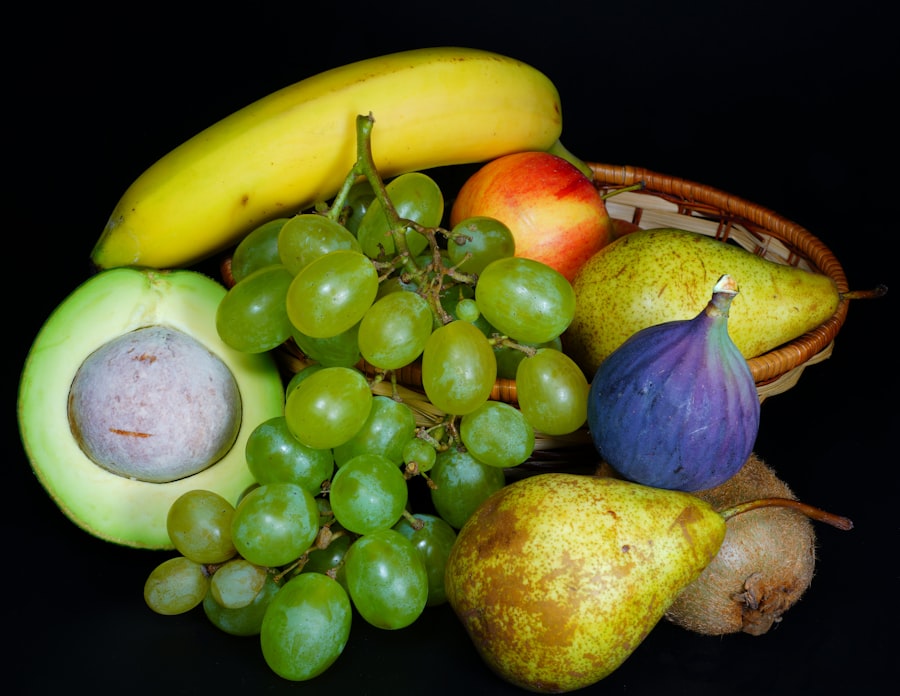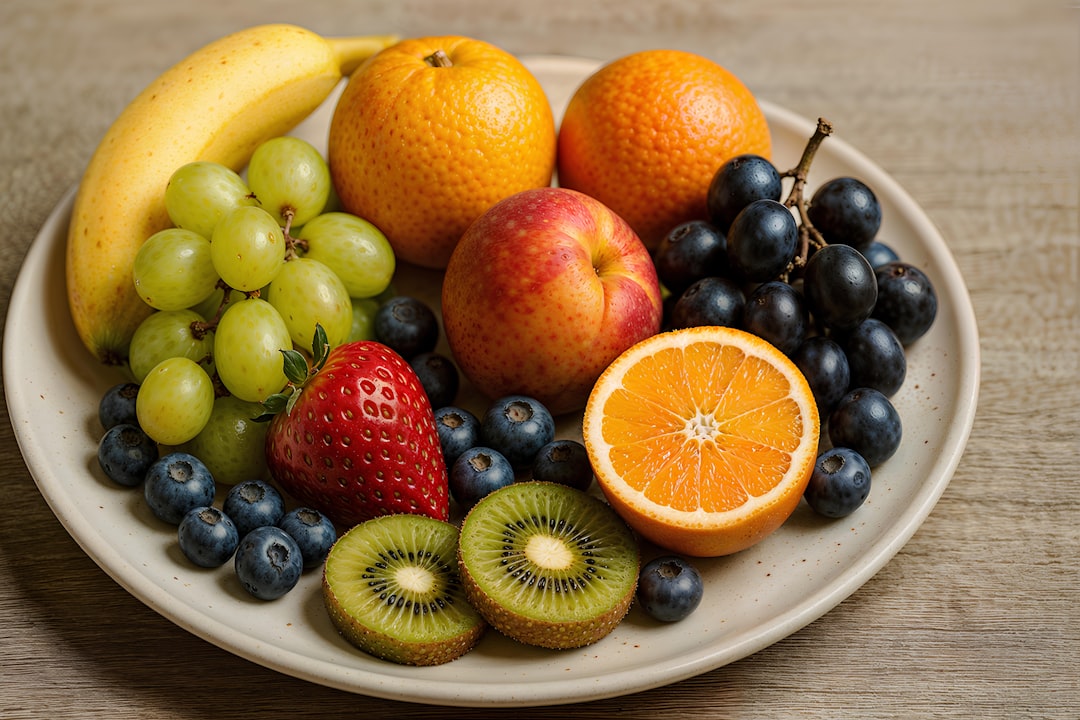As you age, the significance of health and nutrition becomes increasingly paramount. Your body undergoes various changes that can affect how you process food, absorb nutrients, and maintain overall well-being. Understanding these changes is crucial for making informed decisions about your diet and lifestyle.
Nutrition plays a vital role in preventing chronic diseases, managing existing health conditions, and enhancing your quality of life. By prioritizing your health and nutrition, you can empower yourself to lead a more vibrant and fulfilling life. Moreover, the right nutritional choices can help you maintain your independence as you age.
A well-balanced diet can support cognitive function, boost energy levels, and improve mobility. When you nourish your body with the right foods, you are not just feeding your physical self; you are also nurturing your mental and emotional well-being. This holistic approach to health is essential for enjoying your golden years to the fullest.
Key Takeaways
- Senior health and nutrition are crucial for overall well-being and quality of life.
- A balanced diet is essential for optimal senior health, including a variety of nutrients from different food groups.
- Regular exercise is important for seniors to maintain strength, flexibility, and overall health.
- Managing chronic conditions and medications is vital for seniors to stay healthy and prevent complications.
- Hydration plays a key role in senior health and can impact various bodily functions.
Maintaining a Balanced Diet for Optimal Senior Health
To achieve optimal health as a senior, maintaining a balanced diet is essential. This means incorporating a variety of food groups into your meals to ensure you receive all the necessary nutrients. Focus on whole grains, lean proteins, healthy fats, fruits, and vegetables.
Each of these food groups provides unique benefits that contribute to your overall health. For instance, whole grains can help regulate blood sugar levels, while fruits and vegetables are rich in vitamins and antioxidants that combat inflammation. You may also want to pay attention to portion sizes and meal frequency.
Eating smaller, more frequent meals can help maintain energy levels throughout the day without overloading your digestive system. Additionally, consider planning your meals ahead of time to ensure you’re making healthy choices rather than resorting to convenience foods that may be high in sugar and unhealthy fats.
Incorporating Regular Exercise into a Senior’s Routine

Incorporating regular exercise into your routine is another critical component of maintaining senior health. Physical activity not only helps manage weight but also strengthens muscles, improves balance, and enhances flexibility. Engaging in regular exercise can significantly reduce the risk of falls, which is a common concern for seniors.
Whether it’s walking, swimming, or participating in a group fitness class tailored for older adults, finding an activity you enjoy can make it easier to stay active. Moreover, exercise has profound effects on mental health as well. It releases endorphins that can elevate your mood and reduce feelings of anxiety or depression.
Aim for at least 150 minutes of moderate-intensity aerobic activity each week, along with strength training exercises on two or more days. Remember that it’s never too late to start exercising; even small amounts of physical activity can lead to significant health benefits.
Managing Chronic Conditions and Medications
| Condition | Number of Patients | Medication Adherence Rate |
|---|---|---|
| Hypertension | 500 | 80% |
| Diabetes | 300 | 75% |
| Asthma | 200 | 85% |
As you age, managing chronic conditions becomes an integral part of maintaining your health. Conditions such as diabetes, hypertension, and arthritis require careful attention to both diet and medication management. It’s essential to work closely with your healthcare provider to develop a comprehensive plan that addresses your specific needs.
This may involve regular check-ups, monitoring your symptoms, and adjusting medications as necessary. Understanding how your medications interact with food is also crucial. Some medications may require you to avoid certain foods or adjust your meal timing.
For instance, if you take blood thinners, you may need to monitor your vitamin K intake from leafy greens. Being proactive about these interactions can help you manage your conditions more effectively and avoid potential complications.
The Role of Hydration in Senior Health
Hydration is often overlooked but plays a vital role in senior health. As you age, your body’s ability to sense thirst diminishes, which can lead to dehydration if you’re not mindful of your fluid intake. Staying hydrated is essential for maintaining bodily functions such as digestion, circulation, and temperature regulation.
Aim to drink plenty of water throughout the day, and consider incorporating hydrating foods like fruits and vegetables into your diet. Additionally, be aware of factors that can increase your risk of dehydration. Hot weather, certain medications, and health conditions can all contribute to fluid loss.
If you find it challenging to drink enough water, try setting reminders or carrying a water bottle with you. Making hydration a priority will help ensure that you feel your best and support your overall health.
Addressing Nutritional Deficiencies in Seniors

Nutritional deficiencies are common among seniors due to various factors such as changes in appetite, dietary restrictions, or difficulty accessing nutritious foods. Identifying and addressing these deficiencies is crucial for maintaining optimal health. Common deficiencies in seniors include vitamin D, calcium, vitamin B12, and iron.
These nutrients are essential for bone health, energy production, and cognitive function. To combat these deficiencies, consider incorporating fortified foods or supplements into your diet after consulting with a healthcare professional.
Regular blood tests can help identify any deficiencies so that you can take appropriate action to correct them.
Tips for Healthy Aging and Maintaining Independence
Healthy aging is about more than just physical health; it encompasses emotional and social well-being as well. To maintain independence as you age, focus on creating a supportive environment that encourages healthy habits. This might include organizing your living space for safety—removing tripping hazards or installing grab bars in the bathroom—and ensuring easy access to nutritious foods.
Additionally, consider setting personal goals that promote engagement and fulfillment in daily life. Whether it’s learning a new skill, volunteering in your community, or pursuing hobbies that bring you joy, staying mentally active is just as important as physical activity. Embracing a positive mindset about aging can significantly impact how you experience this stage of life.
The Importance of Social Connections for Senior Health
Social connections play a crucial role in senior health and well-being. Maintaining relationships with family and friends can provide emotional support and reduce feelings of loneliness or isolation. Engaging in social activities not only enhances mental health but also encourages physical activity—whether it’s joining a walking group or participating in community events.
Consider exploring local clubs or organizations that align with your interests to foster new connections. Technology can also be a valuable tool for staying connected with loved ones who may not live nearby. Video calls or social media platforms can help bridge the gap and keep you engaged with those who matter most.
Strategies for Managing Stress and Mental Health in Seniors
Managing stress is essential for maintaining mental health as you age. Chronic stress can lead to various health issues, including anxiety and depression. To combat stress effectively, consider incorporating relaxation techniques into your daily routine.
Practices such as mindfulness meditation, deep breathing exercises, or gentle yoga can help calm the mind and promote emotional well-being. Additionally, don’t hesitate to seek support when needed. Talking to friends or family about your feelings can provide relief and perspective.
If stress becomes overwhelming, consider reaching out to a mental health professional who specializes in working with seniors. They can offer tailored strategies to help you cope with life’s challenges.
Seeking Professional Guidance for Senior Health and Nutrition
Navigating the complexities of senior health and nutrition can be daunting at times; seeking professional guidance can make a significant difference in achieving your goals. Registered dietitians or nutritionists specializing in geriatric care can provide personalized meal plans that cater to your specific needs and preferences. They can also help address any dietary restrictions or chronic conditions you may have.
In addition to nutritionists, don’t overlook the value of working with healthcare providers who understand the unique challenges faced by seniors. Regular check-ups can help monitor your overall health and ensure that any emerging issues are addressed promptly.
Resources and Support for Seniors and Caregivers
Finally, numerous resources are available to support seniors and their caregivers in maintaining health and well-being. Local community centers often offer programs focused on nutrition education, exercise classes tailored for older adults, and social activities designed to foster connections among peers. Online resources are also abundant; websites dedicated to senior health provide valuable information on nutrition guidelines, exercise recommendations, and mental health support.
Additionally, consider joining support groups where you can share experiences with others facing similar challenges—this sense of community can be incredibly empowering as you navigate the aging process together. In conclusion, prioritizing senior health and nutrition is essential for leading a fulfilling life as you age. By understanding the importance of balanced diets, regular exercise, hydration, social connections, stress management strategies, and seeking professional guidance when needed, you can take proactive steps toward maintaining your independence and overall well-being in your golden years.
As we age, maintaining a balanced diet and staying active become increasingly important for overall well-being. Seniors can benefit from incorporating nutrient-rich foods and regular physical activity into their daily routines to enhance their quality of life. For more detailed insights and practical advice on senior health and nutrition, you can explore an informative article on this topic by visiting Explore Senior Health. This resource offers valuable tips and strategies to help seniors lead healthier, more active lives.
WATCH THIS! 🧠 Stop Senior Moments: The Golden Spice That Reverses Memory Loss
FAQs
What are some important senior health and nutrition tips?
Some important senior health and nutrition tips include eating a balanced diet rich in fruits, vegetables, whole grains, and lean proteins, staying hydrated, engaging in regular physical activity, getting enough sleep, and staying socially connected.
Why is nutrition important for seniors?
Nutrition is important for seniors because it plays a key role in maintaining overall health and well-being. A healthy diet can help prevent chronic diseases, maintain a healthy weight, support immune function, and promote energy and vitality.
What are some common nutritional challenges for seniors?
Some common nutritional challenges for seniors include decreased appetite, difficulty chewing or swallowing, limited access to fresh and healthy foods, and changes in taste and smell. Additionally, some seniors may have specific dietary restrictions due to medical conditions.
How can seniors maintain a healthy diet as they age?
Seniors can maintain a healthy diet by focusing on nutrient-dense foods, such as fruits, vegetables, whole grains, and lean proteins. It’s also important to stay hydrated, limit processed and high-sugar foods, and consider any specific dietary needs or restrictions.
What are some key nutrients that seniors should focus on?
Some key nutrients that seniors should focus on include calcium and vitamin D for bone health, vitamin B12 for nerve function, fiber for digestive health, and omega-3 fatty acids for heart health. It’s important to consult with a healthcare professional for personalized nutritional recommendations.
